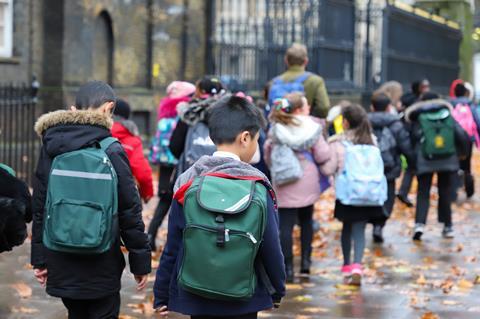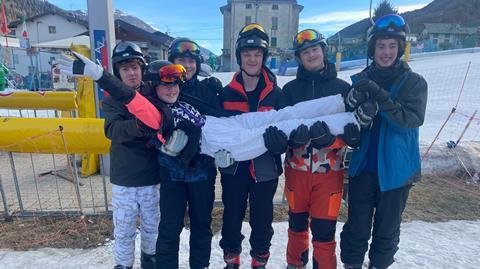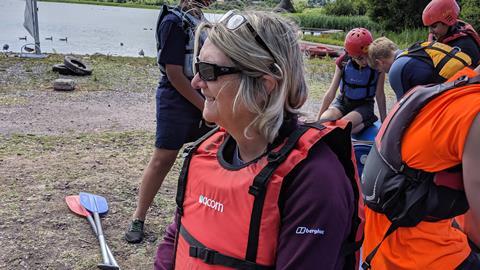We hear from teachers and EVCs about their planning process for educational visits and why it’s important to start early for maximum rewards.
Time can be in short supply for teachers with many priorities to juggle each day. Getting a framework together for school trips and starting the planning cycle early can make the whole process less stressful and lead to a more successful experience.
Wayne Holder from Alderman Richard Hallam Primary School in Leicester explains: “We have a broad list of ideas for trips for the coming academic year before the end of the summer term. This is helpful for several reasons. It means we can give parents as much notice as possible of approximate costs and dates. We can ensure different year groups aren’t doing the same thing. And we can make sure the trips fit with curriculum goals.
“We do leave some capacity in the calendar so we can slot in ad-hoc trips if opportunities arise during the year. For example, earlier this year we managed to get tickets to take a group of pupils to Wimbledon.”

Deciding when school trips should run for maximum value
As well as looking at how the trips can support the curriculum, careful consideration is also given to when the trips take place to maximise the benefits for pupils and teachers.
Wayne continues: “We used to run the Year 6 residential in June but it was becoming increasingly expensive. We trialled running it in March but the unpredictable weather led to some activities being cancelled so we’ve moved it to September.”
“We do leave some capacity in the calendar so we can slot in ad-hoc trips if opportunities arise during the year. For example, earlier this year we managed to get tickets to take a group of pupils to Wimbledon.”
Wayne Holder, Alderman Richard Hallam Primary School
The Steiner Academy Hereford has a well-established framework for its school trips, which, in addition to helping teachers prepare, ensures visits are fully integrated within the curriculum. The annual cycle is understood and well-recognised by pupils and staff. Younger children hear tales from older siblings and eagerly look forward to their time to venture off on a particular trip.

The framework starts in Year 3 with an overnight farm residential to support the learning they have been doing in school about farming and agriculture. The residentials continue to build in duration as children progress through the school. In Year 5 the focus is local history and the class spends three days hiking the Three Castles Walk. A period studying the Romans in Year 6 has at its heart a five-day residential to Hadrian’s Wall.
How far in advance to plan?
Lee Gwillim at James Calvert Spence College in Northumberland starts thinking about the programme of school trips for his school over a year in advance and is currently looking at repeating a highly successful ski trip to Italy in 2025, and introducing trips to Iceland and Canada in 2026/7.

He told us: “Within the science department, we plan around 12 to 18 months in advance for most trips. This gives us time to iron out any problems and to make sure everything and everyone is prepared. It also means we know what is happening for each year group so we can ensure there is a good spread of opportunities. We are also mindful of the cost of living. By planning well ahead, we can ensure trips are well distributed throughout the year.”
“We are also mindful of the cost of living. By planning well ahead, we can ensure trips are well distributed throughout the year.”
Lee Gwillim, James Calvert Spence College
Some venues and destinations offer familiarisation visits. The need for staff confidence is echoed by Wayne, “If we are planning a trip to somewhere new, we either make sure we have at least one member of staff accompanying the trip who knows the venue or location or if the trip is to somewhere in the UK, one of the staff team will do a pre-trip visit before we go.
“I’m organising our school’s first ski trip to Italy in 2026. While I have personal experience skiing in the area, to ensure its success we’re using a tour operator for the whole planning and booking process so we can take advantage of their knowledge and expertise in supporting school groups.”
Giving parents as much time as possible
Karen Tidmarsh is school travel coordinator for Winchmore School in Enfield and the winner of the School Trip Champion Award in 2023. She has a rolling programme for educational visits to be able to accommodate ad-hoc visits. When it comes to residentials and overseas trips, she aims to give parents as much notice as possible to have time to pay for the experiences.

She said: “In the back of my mind, I am always thinking as a parent. We launch our September geography field trip just after Easter and the school contributes to part of that as it’s part of exam work – we’ll pay for the trip first and then collect what the parents owe, and we do use a parent payment plan to make it easier. We’ll also add trips into the calendar as provisional so that parents can see them before they have even been booked.”








No comments yet